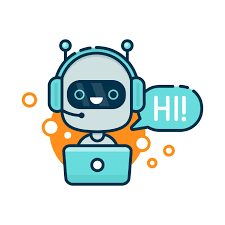 AI and older adults – powerful if enabled. There are few limits to the possible benefits of AI in its many forms, conversational, generative, Chatbots and more. Some say that we are in The Golden Age of AI. But constraints faced now and in coming years are beginning to emerge from public and political debates about privacy, ethics and proposed regulation. They will be coupled with the lagging pace of institutions, particularly healthcare, to change aging systems that can help realize the benefits. Within five years, however, it is inevitable that the role of this tech revolution in our lives and those of older adults will enable changes in society’s focus, occurring in and across multiple domains. The following domains will add AI (via voice or other interaction modes) to services, including:
AI and older adults – powerful if enabled. There are few limits to the possible benefits of AI in its many forms, conversational, generative, Chatbots and more. Some say that we are in The Golden Age of AI. But constraints faced now and in coming years are beginning to emerge from public and political debates about privacy, ethics and proposed regulation. They will be coupled with the lagging pace of institutions, particularly healthcare, to change aging systems that can help realize the benefits. Within five years, however, it is inevitable that the role of this tech revolution in our lives and those of older adults will enable changes in society’s focus, occurring in and across multiple domains. The following domains will add AI (via voice or other interaction modes) to services, including:
Health management of self-care, enabling conversational access. To date, accessing healthcare services requires determination and access, through call center services with menus designed to prevent access, or online via portals with baffling menu structures and arcane login processes. Today’s AI chatbots like ChatGPT and Bing Chat (which now share the same updated data sources) can answer a broad range of healthcare questions, not just for consumers, but also for doctors, some of whom are astonished and excited about the possibilities. In fact, computer scientists and medical researchers are intrigued by the possibility of a medically trained GPT-4, the software basis for the current chatbots. For one thing, it can already answer medical licensing exam questions correctly 90% of the time. And a paper from NIH will soon be published that verifies the accuracy of ChatGPT-sourced medical information.
Monitoring with nuance. AI and sensor data can derive patterns and alerts that inform care, for example, combining sensors with data about individuals that have a history of falls, AI tools can detect bed, chair, and room exits which require immediate response. Smart beds with sensors have been deployed in hospital systems. Long-term care communities use AI from firms like EarlySense for incident alerting or VirtuSense for prediction and fall avoidance.
AI-enabled cameras to detect falls and other anomalies. AI in cameras was noted in The Future of Sensors and Older Adults 2022. They have advanced to the point where they can deliver alerts ‘at the edge’, that is without transferring data to servers. They can be Wi-Fi enabled, initiated by voice, or use cameras to detect unnoticed changes, and can also incorporate machine vision. SafelyYou’s brief video-based alerts notice unwitnessed falls. Inspiren’s Augi wall-mounted system uses video to predict falls for older adults in senior care or hospitals.
See the new Report The Future of AI and Older Adults 2023
Your additional examples welcome!

 AI and older adults – powerful if enabled. There are few limits to the possible benefits of AI in its many forms, conversational, generative, Chatbots and more. Some say that we are in
AI and older adults – powerful if enabled. There are few limits to the possible benefits of AI in its many forms, conversational, generative, Chatbots and more. Some say that we are in